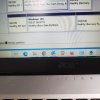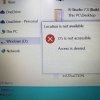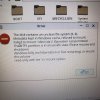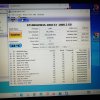johnrobert
Well-Known Member
- Reaction score
- 260
- Location
- Vancouver BC
Client ran chkdsk now unreadable 1 Tb 2.5 spinner not expecting much success she does not want to send it out
I connected to a Linux box last picture also rebooted Windows clean. all pictures connected USB
I connected to a Linux box last picture also rebooted Windows clean. all pictures connected USB




